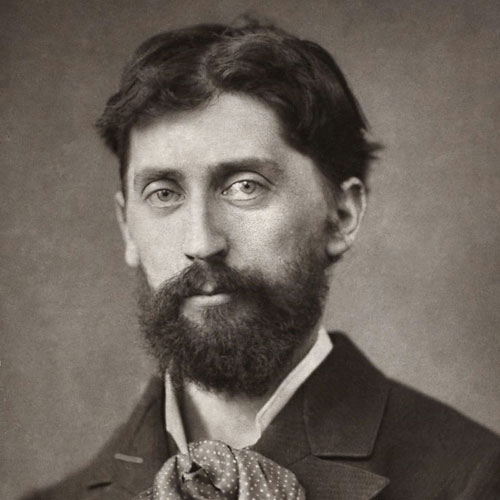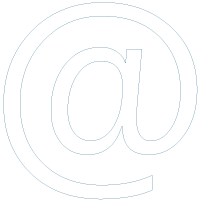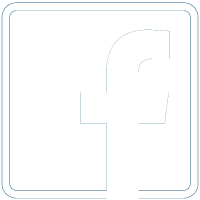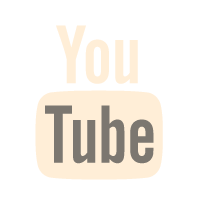An alienist friend of artists : Jacques Joseph MOREAU DE TOURS (1804-1884)

While the work of the painter Georges Moreau de Tours is still to be discovered, his father, the psychiatrist Jacques Joseph Moreau so-called « de Tours », is renowned worldwide [1]. Dr Henri Ey, one of the most eminent 20th century French psychiatrists considered Moreau as an ’uncontested and indisputable master of modern psychiatry’ (introduction to the republication of Du Hachisch in 1970). Pr Henri Baruk of the Académie de Médecine had designated Jacques Joseph Moreau as father of the psychopharmacology in creating the Société Moreau de Tours.
His eldest son Paul emulated him when he took over as director of the Ivry asylum and developed further several of his father’s ideas in his own scientific work. As such Jacques Joseph was in modern terms ’a leader in original thought’, and some of his theories were deeply shocking to his contemporaries. He also loved the arts and was a friend of many artists as well as their physician, and he did not object to the artistic vocation of his second son Georges. In return, as a homage to his father, the latter illustrated in his work some family events as well as some scenes of his father’s special subjects of study, and depicted him in two masterly portraits.
Hereafter we will briefly outline the life and work of Jacques Joseph Moreau and describe his dealings with the contemporary Parisian art circles together with his theories on the relationship between Genius and insanity.
I The career of a psychiatrist of modest origins.
In our volume the Moreau de Tours [2] the chapter by J-C Féray describes the family of Jacques Joseph Moreau as simple folks both on his father and on his mother’s side. His father was a police officer and it was no doubt due to the Revolution that Jacques Joseph was able to study and join the École de Médecine in Tours. He became one of the favourite students, together with Velpeau and Trousseau, of the famous Dr. Bretonneau (his son Georges later painted his portrait).

Moreau went up to Paris where he was taken on as an intern by the famous Esquirol, who had just been appointed director of the maison royale de Charenton asylum. Eugène Hugo was then a patient and he wrote his medical report as Thierry Haustgen discovered [3] . One could think that Moreau was then acquainted with the Hugo brothers, Abel and Victor, who later belonged to the Société Orientale cf infra. He received his doctorate in June 1830 and soon after asked permission to be sent on a first voyage thérapeutique in escorting to Italy one of his wealthy patients
( in the meagre arsenal of the therapeutic means of the time, travelling was then considered one of the secours de la médecine ).
Antoine Ritti (1844-1920) his first biographer wrote about his first travel : « endowed with an artistic nature, he had felt a profound joy in visiting Italy, its museums, its monuments ». He added further on « he loved art under all its aspects; he enjoyed conversing with literati and artists ».
In 1836-1837 he went on a second voyage thérapeutique to the Middle East, lasting for eleven and a half months it became a study tour. In Egypt he met Dr Aubert-Roche, the Pacha’s physician, and with this compatriot and in the company of other European young men, he took part in a fantasia, a session of hashish taking, a substance which Aubert-Roche had been the first to discover the marvellous effects and harmlessness! On his return to France Moreau created in 1841 with Aubert-Roche the Société Orientale supported by many famous personalities in political and literary circles. It is then that he truly started his first self-experiments with the hashish
(used as a paste, the dawamesc). He drew from them an original concept of insanity which he exposed in Du hachisch et de l’aliénation mentale, published in 1845 which made him famous. He put forward «a general theory of mental alienation based on the analogy between the state of dreaming and insanity, and on the identity of a natural state of madness and of the madness created by cannabis » (indien). [4]
In the meantime, as his master Esquirol, he led a double career as an alienist as Head of Department at the Bicêtre Hospital en 1840 (then at La Salpêtrière in 1861), while he had assumed in 1843 together with Jules Baillarger, another of Esquirol’s student, the direction of the Esquirol asylum at Ivry (Louis-Victor Marcé rejoined them 1856). His work is dominated by two volumes, one on the hashish and the other published in 1859 La psychologie morbide [5] on which we shall briefly comment.
II Jacques Joseph, as the promoter of the therapeutic use of hashish .
As indicated by Michel Caire [6] the idea of treating insanity with the use of hashish (and of other products equally able to provoke it) rests on two principles: substitution ( inspired by the homeopathic axiom simila similibus curantur) and perturbation ( to provoke a salutary « crisis »). The results of Moreau’s tests were limited or ineffectual (it has also been the same with the Datura, « the madmen’s plant » in the Orient).
After this relative failure Moreau had to face his first criticisms. He would have to face many others ten years later when after having written his opuscule De l’identité de l’état de rêve et de la folie, he undertook to defend this thesis at the Académie de Médecine (which he longed to join ). Together with J-F Allilaire [7] we have recounted the historical sparring match opposing him to the Academician J-B Bousquet. The latter had no difficulty in contesting Moreau’s exclusive cerebralism, he ended his demonstration by the killer words: ’That the author of such a concept (identity) believes in it is his just punishment.’
III Jacques Joseph Moreau and the recreational use of hashish. The creation od the Club des Hachichins.

Did the failure of the tests on the hashish as a therapy pushed Jacques Joseph to seek public success and fame, without any doubt as indicated by Arveiller and J-C Féray (article above mentioned). Even if he was not the first one to organize such tasting sessions, his prestige as a traveller back from the Orient ensured him success and fame in the Parisian artistic and literary contemporary circles when he set up his own fantasias.

The first ones were held at the beginning of 1843 and Théophile Gautier who wanted to take part gave a first account in the daily La Presse of July 10th 1843. Then in 1846 Gautier published an article in La Revue des deux Mondes entitled Le Club des Hachichins, recounting in a text now famous one of the Club’s sessions: « The doctor was standing near the buffet on which tray was laid with some small saucers…he drew from a crystal vase with a spatula a piece of greenish paste or jam as big as a thumb which he put on each saucer by the side of a gold-plated spoon. The doctor’s face shone with enthusiasm: his eyes were sparkling, his cheekbones glowed with a rosy blush, the veins of his temples were bulging, his dilated nostrils aspired the air forcibly. - This will be deducted from your share of Paradise, he told me in giving me the dose which was mine. ». Then Gautier described the effects of the product on the participants, starting by their cicerone, (the doctor) « a determined hashish eater, (he) was the first hit having taken a higher dose than us; he was seeing stars in his plate and the firmament at the bottom of the soup tureen; then he turned his nose against the wall, talking to himself, roaring with laughter » etc.

Île Saint-Louis, Paris 4e
The Club des Hachichins met at the hotel Pimodan or hotel de Lauzun, 17 quai d’Anjou, it gathered as reported by M. Caire according to an account of the time, distinguished personalities, literati, scholars and especially some doctors. On December 22nd 1845 took place the fantasia in which participated Baudelaire who like Théophile Gautier lived at the hotel de Lauzun, and Honoré de Balzac. The latter wrote Moreau a letter quoted in his volume Du Hachisch « There would be a beautiful experience to make, of which he had been thinking about for 20 years: to remake (with the help of the hashish) a brain to a nitwit »!
As for Baudelaire his position towards the Paradis artificiels was very critical. He compared the hashish to wine and condemned it thus: « Never a man able to attain instantly with a spoonful of jam to all the goods of heaven and earth, will acquire the thousandth part through work… wine elates the will, hashish annihilates it ». This is a rather pertinent remark coming from a master in the use of toxic products, which could be opposed to the actual supporters of the legalisation of cannabis when they assimilate it to wine.
IV The relationship between Genius and madness according to Jacques Joseph Moreau de Tours.
With the publication of his Psychologie morbide in 1859 Moreau de Tours was yet again to astonish his contemporaries. True to say as pointed out by PH Brenot [8] the link Genius/madness was commonplace since Antiquity, but no one had yet proposed to make enter the pathological element to this extent and in solely referring to modern science born in the 19th century, which Moreau called morbid psychology (the psychiatric clinic of the time). Above all no one had yet dared make a link between Genius and idiocy!
We have elsewhere analysed Moreau’s work [9] showing that for Moreau, who was an inflexible organicist converted to hereditarism, the main cause of mental illnesses and all mental productions, was through the transmission of a tare or of an eminent faculty (both being linked), or of another predisposition in the form of a diathesis.
He illustrated his concept with the drawing of a tree its roots were called nervous hereditary and idiosyncratic state. On the right side of the tree exceptional intelligences occupied the top, and on the lower branches was the ensemble imbecility/ idiocy, but the whole of the tree was fed by the same sap. Moreover he had noticed that some idiots before sinking into imbecility had shown a precocious intellectual development. Also that many parents of mental patients had shown some odd behaviour, intellectual facility and talents for the arts, and he had made of this heredity a sort of aphorism: Parents’ eccentricity, children’s delirium. His son Paul developed this concept in his work Les Excentriques.

Moreau built up his theories on his own experience as a clinician and on the particular cases of some patients he had in care or he knew. It was so with the poet Gérard de Nerval whose experience of madness he had called the intrusion of the dreaming state in real life was exactly similar so Moreau tells us to his own experience of hashish taking. The famous composer Donizetti was one of his patients: he suffered from a Terminal General Paralysis (that is a form of madness caused by syphilis). Through his medical case, Moreau built up the theory that madness could be the development of a supposed paralytic constitution ( it was not yet known syphilis was at the root of the illness). Above all he suggested that before the terminal collapse such a constitution gave to the patient: ’a marvellous spirit of invention, a facility for intellectual pursuits, and an extraordinary hyperactivity’. He gave as example the composer’s case who had been his patient at Ivry, but said nothing of the extraordinary conditions of his hospitalisation. The idea initiated by Moreau that a general paralysis at its beginning could be a factor of creativity was very popular for decades in literary circles. We have demonstrated with P Bartolomeo [10] that the maximum of Donizetti’s creativity occurred during the symptomatic period of his illness and not before.
Moreau’s book brought him many criticisms, in particular against one of his provocative propositions that Genius is only a neurosis. The brothers Goncourt in quoting it in their Journal described Jacques Joseph in those terms: Here is another barker of abyss ! Moreau’s book inspired Cesare Lombroso’s L’homme de Génie, another volume much criticized in its time, but the current studies on the concept of the creativity of artists, writers or scientists, with the now fully recognized favourable effect of mood disorders, (even of a bipolar illness) follow on the path he had first traced.
Was Jacques Joseph Moreau de Tours himself suffering from such an illness, and did he transmit it to his descendants? Some episodes still unclear in his biography (the illness which kept him away for some months in 1864 from the Société Médico Psychologique of which he was the acting President) and the internment discovered by J-C Féray [11] of one of his grandsons (André, Paul’s son) would seem to indicate it.
Dr Jean-Pierre Luauté
Ancien Président de la Société Médico Psychologique
Juily 2021
All rights reserved



 contact@amisdemoreaudetours.com
contact@amisdemoreaudetours.com
 @AssociationDesAmisDeMoreauDeTours
@AssociationDesAmisDeMoreauDeTours
 @amisdemoreaudetours
@amisdemoreaudetours